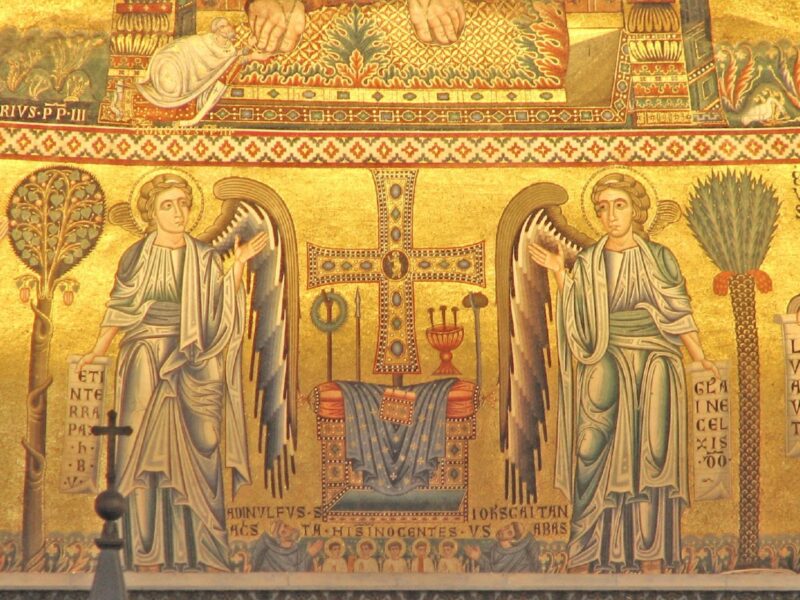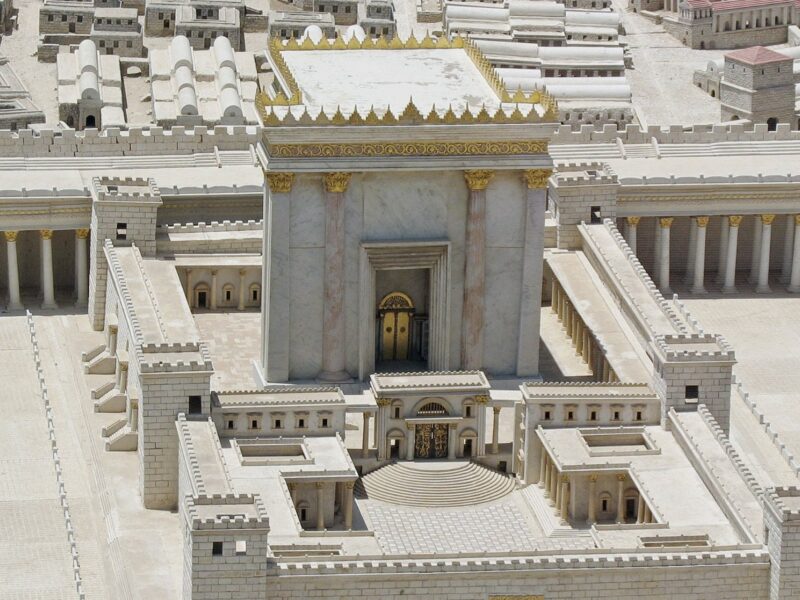
A Parabolic Puzzle
Twenty-Second Sunday of the Year. Fr Benjamin Earl preaches on the parable that isn’t. Or is it?
Today’s gospel passage is a puzzling one, if we look at it closely. We hear that ‘Jesus told a parable to those who were invited’. But what follows doesn’t look like a parable at all.
We are used to parables starting with phrases like, ‘A father had two sons,’ or ‘A sower went out to sow seed,’ or ‘The kingdom of heaven may be compared to a mustard seed.’ They are stories or images whose purpose is to illustrate some deeper point.
What we have today, though, is not a story or an image; Jesus simply gives instruction on how to behave. ‘When you are invited… to a marriage feast, do not sit down in a place of honour,’ he says to those present. It doesn’t seem to be a parable at all.
Instead, Jesus seems to be giving some simple moral advice to his listeners: don’t be puffed-up and arrogant, but instead show a little bit of humility.
This is all very well, but it is hardly an original idea: Jesus ben Sira wrote the words we heard in our first reading two hundred years before Jesus of Nazareth uttered the not dissimilar words recorded in today’s gospel. The idea, in fact, is fairly obvious: nobody likes someone who is full of self-importance, and a little bit of mild self-deprecation can help you get on in life.
But if this is all so unoriginal and obvious, why is it in the gospels? We can take it as read that there is little that is in the gospels needlessly. Surely there must be some deeper meaning to the words of Jesus. What is really going on here?
There are a couple of clues in the passage. At the very end of our reading, Jesus talks about not being repaid in this world for our kindnesses, but ‘at the resurrection of the just.’ Is this an indication that we’re perhaps not just talking about a single feast, but rather should have a more cosmic timeframe in mind?
Then we might look at the way Jesus sums up this ‘parable’:
Every one who exalts himself will be humbled, and he who humbles himself will be exalted.
It is interesting that Jesus talks of ‘every one’ who exalts himself, but just ‘he’—just one person—who humbles himself. This may simply be a turn of phrase; but we should consider the possibility that Jesus really does mean to say that many, even all, have exalted themselves, but that only one person truly humbles himself.
This, then, is what makes Jesus’ advice about table etiquette into a parable. All humanity has ‘exalted itself’ through the sin of pride: that desire of Adam and Eve to be like God, a desire in which we have all shared. As a result of that sin, all have been humbled, cut off from God.
Yet, in response, God has humbled himself by becoming incarnate. Jesus Christ is the one just man who has humbled himself; Jesus Christ is the one who was lifted up—exalted, that is—on the cross, and who has been exalted to the heights of heaven. He it is who has invited all the sinners of the world to his feast, lifting us up in turn from our sinful state, inviting us to follow his example and join him at his heavenly feast.
Of course, we must still follow Jesus’ teaching at its most basic level, unoriginal and obvious though it is. But when we do so, we must remember that our humility is not something we do simply in order to help ourselves advance in this life. Rather, it is in imitation of the immense humility of Jesus Christ, who, though he is God, reduced himself to share in our state. We do this too in imitation of his charity to the disadvantaged of the world.
Our reward is not in dinner invitations, nor in being invited to a higher place at the table, but in enjoying with Christ the marriage feast of the lamb at the resurrection of the just.


